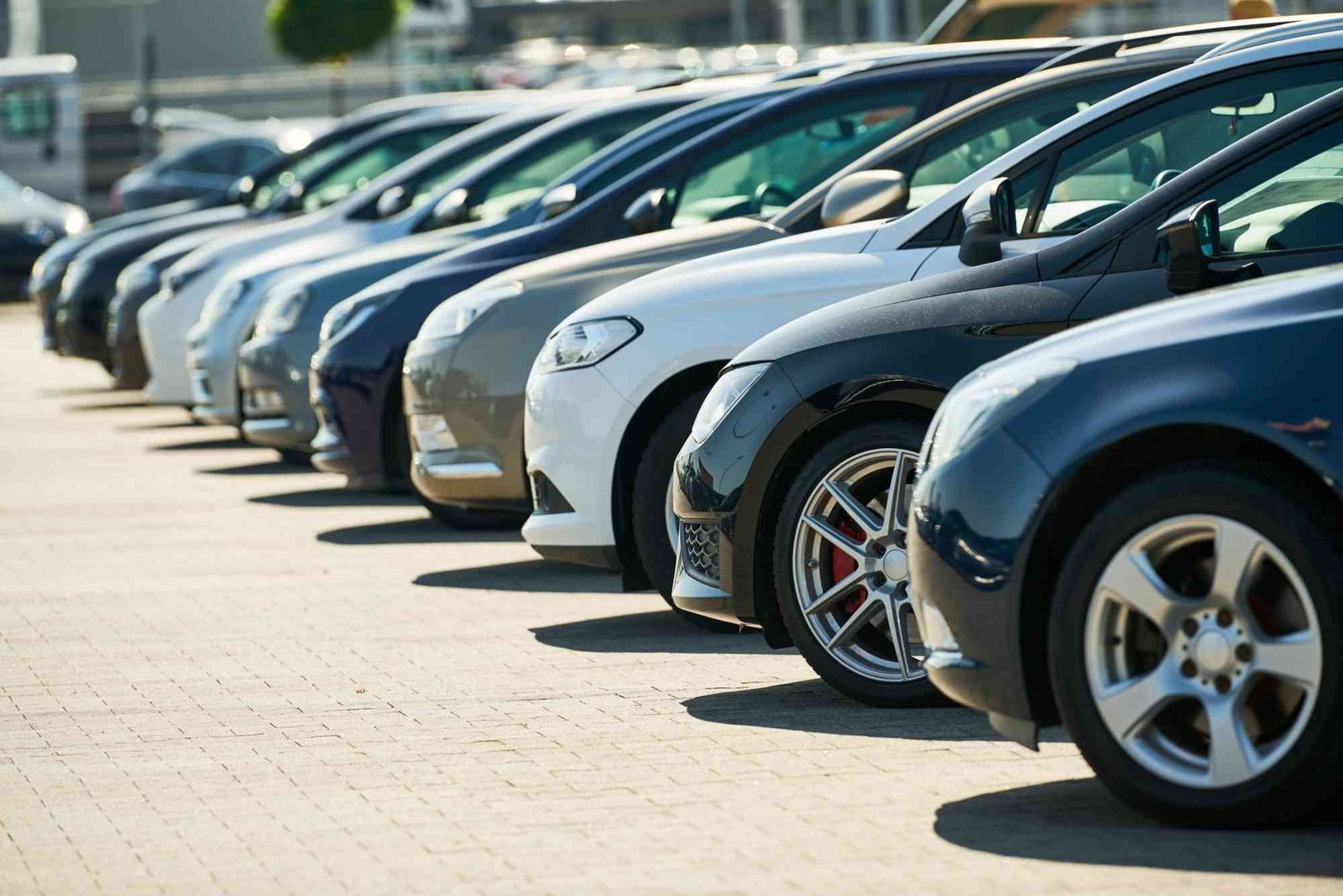Introduction
Buying a car from a public auction can be one of the smartest ways to get a high-quality vehicle at a fraction of its retail price. However, navigating a public auction car site requires more than just enthusiasm. It demands understanding, research, and a strategic approach. In this complete guide, Top Tips: Public Auction Car Site Explained, we’ll explore how to successfully bid, avoid common pitfalls, and make your car-buying journey more rewarding.
From understanding how online car auctions work to learning essential bidding strategies, this guide provides practical insights for both first-time buyers and seasoned bidders.
Understanding How Public Auction Car Sites Work
Public auction car sites are online platforms where cars are listed for bidding, often by individuals, dealerships, or financial institutions. These sites allow users to bid competitively, and the highest bidder wins the car once the auction ends. Unlike traditional car dealerships, auctions offer vehicles “as-is,” which means buyers need to perform due diligence before placing a bid.
Many public auction car sites list repossessed cars, trade-ins, fleet vehicles, or even government-owned cars. The key is to understand what you’re bidding on and ensure it aligns with your needs and budget.
Why Choose Public Auction Car Sites?
The appeal of public auction car sites lies in their accessibility and potential savings. Cars often sell for significantly less than market value, giving buyers the chance to save thousands of dollars. Additionally, online auctions provide access to a wide range of vehicles — from compact city cars to luxury sedans and SUVs.
Another advantage is transparency. You can view vehicle history reports, images, and inspection results before bidding. Still, not every auction site guarantees full information, so always proceed with caution.
Key Steps Before Participating in a Car Auction
Before you start bidding, take time to understand the process. Preparation ensures you make informed choices rather than emotional ones.
Research the Platform
Start by choosing a trusted auction site. Some well-known public auction car sites include Copart, IAAI, and Manheim. Read reviews, check licensing, and understand their bidding rules and fees.
Inspect the Car Virtually or Physically
If the auction site allows physical inspections, always check the vehicle in person. Look for signs of damage, previous accidents, or mechanical issues. If in-person viewing isn’t possible, review high-resolution images and inspection reports carefully.
Understand the Fees
Auction platforms often charge a buyer’s premium, documentation fees, and sometimes transport costs. Make sure to factor these into your total budget before placing a bid.
Set a Realistic Budget
Determine your maximum bid and stick to it. It’s easy to get caught in bidding wars, but discipline is crucial to ensure you don’t overpay.
How to Place a Winning Bid Confidently
Bidding at a public auction can feel exciting — and stressful. Knowing when to bid and how much can make a big difference.
Start Low and Observe
Begin with a low bid and watch how others participate. Many experienced bidders hold off until the final minutes before increasing their offer strategically.
Avoid Emotional Bidding
Never let excitement cloud your judgment. Stick to your predetermined budget and avoid competing out of pride or pressure.
Know the Car’s Market Value
Compare the auction car’s price to its retail value using tools like Kelley Blue Book or Edmunds. This helps you identify a genuine deal versus an overpriced bid.
Check the Vehicle Identification Number (VIN)
Use the VIN to verify the car’s history. This number helps you detect theft, accident history, or outstanding recalls. Many public auction car sites provide VIN reports directly on their listings.
Essential Tips to Succeed at Online Car Auctions
Buying from a public auction car site requires careful strategy. These proven tips can help maximize your success and minimize risks.
Learn Auction Terminology
Familiarize yourself with key terms like “reserve price,” “as-is,” and “buy-it-now.” This understanding will prevent confusion and help you make smarter choices.
Watch Multiple Auctions First
Before participating, observe several auctions to understand pricing trends, bidding patterns, and timing. This observation phase builds your confidence.
Verify Vehicle Documents
Ensure the car comes with a clean title or verify the type of title being sold (salvage, rebuilt, or lien). Missing paperwork can cause issues during registration.
Know the Seller
Some auction cars come from reputable dealerships, while others are listed by individuals or insurance companies. Knowing who owns the vehicle gives insight into its condition.
Understand Delivery and Transport Options
If the car is located far away, calculate transportation costs in advance. Some auction sites offer delivery services, while others require you to arrange pickup.
Common Mistakes to Avoid in Public Car Auctions
Even experienced buyers make mistakes in public car auctions. Awareness of these pitfalls helps you save money and frustration.
Bidding Without Research
Never bid on impulse. Always verify the vehicle’s market value, condition, and ownership status before bidding.
Ignoring Fine Print
Each auction has its own rules. Overlooking details like payment deadlines, return policies, and inspection timelines can result in lost money.
Not Factoring in Repairs
Many auction cars need repairs or maintenance. Estimate potential costs before bidding, especially if you’re buying a salvage or repossessed vehicle.
Skipping Vehicle History Checks
A car might look perfect online but could have hidden issues. Always use VIN-based history reports to verify its authenticity and condition.
The Role of Vehicle Inspection and Maintenance
A critical step after winning your car auction is inspection and maintenance. This ensures your purchase remains reliable and safe for long-term use.
Professional mechanics can evaluate engine health, brakes, fluids, and electronics before you finalize registration. For better understanding of how your car’s power source functions, explore What Is An Automobile Engine — for a detailed guide on engine components and performance.
Regular servicing, proper lubrication, and following manufacturer guidelines are essential. To learn why oil and lubrication matter for vehicle performance, visit What Is The Necessity Of Lubrication. Understanding these concepts helps you maintain your car efficiently.
Comparing Public Auction Sites: Finding the Right One for You
Each auction platform offers distinct benefits. While Copart is known for salvage vehicles, Manheim specializes in dealer-to-dealer sales. For general buyers, IAAI or local public car auctions may provide better accessibility.
Compare the following factors:
-
Transparency in listings
-
Buyer protection and dispute handling
-
Vehicle availability and range
-
Auction fees and deposit requirements
Choosing the right platform saves time, money, and future headaches.
Advantages of Buying Cars from Auctions
Buying from public car auctions offers multiple advantages beyond affordability. You can find rare or discontinued models, access newer cars at lower prices, and enjoy fast transactions without heavy dealership markups. Moreover, auctions are transparent, allowing you to compete fairly and see real-time bids.
Disadvantages to Consider
However, not everything about public auctions is ideal. You often buy vehicles “as-is,” meaning no warranty or guarantee. Repairs may be necessary, and some listings lack full disclosure of issues. Therefore, due diligence and patience are vital.
To enhance your automotive understanding before purchasing, read Top Tips: What Is An Automobile, which provides a practical overview of how vehicles operate and what features to prioritize.
FAQs
Can anyone buy from a public car auction?
Yes, most public auctions are open to everyone. Some, however, may require registration or a refundable deposit before bidding.
Are public auction cars safe to buy?
They can be, provided you verify the vehicle’s history, title status, and condition. Using trusted platforms and independent inspections minimizes risk.
What’s the difference between public and dealer auctions?
Dealer auctions are limited to licensed dealers, while public auctions are open to general buyers. Dealer auctions may offer higher-quality vehicles, but public auctions provide wider access.
How do I pay for a car I win?
Most auction sites accept wire transfers, certified checks, or online payments within a fixed timeframe, typically 48–72 hours after the auction ends.
What happens if I win a bid but change my mind?
Backouts can lead to penalties or forfeited deposits. Always be sure before placing a final bid.
Public auction car sites offer tremendous opportunities for savvy buyers — from securing rare models to saving money on reliable vehicles. However, success comes only with preparation, patience, and informed decision-making. Always research, verify vehicle details, and stay disciplined during bidding.
Understanding car fundamentals, such as engine function and lubrication, empowers you to maintain your vehicle effectively and maximize its lifespan. If you’re ready to explore affordable car options and smart buying strategies, start browsing reputable public auction car sites today — your next great deal might just be one bid away.




